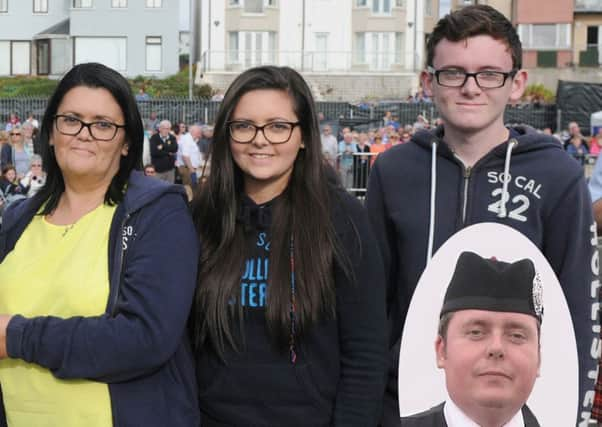MLA speaks of need for opt-out donor system


In a passionate plea during the debate on the Human Transplantation Bill, Mr Middleton said with the current ‘opt-in’ system, people had to actively sign the Organ Donation Register, but with an ‘opt-out’ system, organ donation would occur automatically, unless a specific request was made before death for organs not to be taken.
“Whilst I have no doubt that there are positives and negatives in both systems, the fact that both of them are reliant on active decisions from individuals, can lead to drawbacks,” Mr Middleton said.
Advertisement
Hide AdAdvertisement
Hide Ad“Inaction in an opt-in system can lead to individuals who would want to be donors not donating. In contrast to this, inaction in an opt-out system can potentially lead to an individual that does not want to donate becoming a donor.


“There are numerous reasons why people may not act; whether it be through lack of awareness, loss aversion or belief that the policy makers have got it right and there’s no need to do anything.”
Revealing he had signed up to organ donation, Mr Middleton said: “It is only when I hear the personal stories of those who are waiting for an organ transplant or those who have received an organ that it truly hits home how life changing and life saving the decision is.
“One such story is that of Andrew Duncan. At the age of 23, Andrew was diagnosed with a hereditary condition called dilated cardiomyopathy. Andrew lived in the Waterside area of the Foyle constituency with his wife and two children. He had been on the waiting list for a heart transplant since 2011.
Advertisement
Hide AdAdvertisement
Hide Ad“Andrew was a strong advocate for new legislation for the opt-out system for organ donation in Northern Ireland. Even though he suffered from a heart condition which made it difficult for him to walk, last February he carried out a sponsored walk to raise awareness and money for the British Heart Foundation.


“He also made a very poignant video for the British Heart Foundation, appealing for people to consider donating their organs.”
Appealing for people to watch the video, Mr Middleton said: “Sadly one year ago on this day, Andrews’ time ran out and he lost his fight for life. We must remember all of those who have lost loved ones who were in need of an organ transplant. There are many of them. It is impossible to ignore the personal stories of those who have been directly affected by organ failure and reliant on organ donation. Just like Andrew.”
He said that, with nine out of 10 people in the UK saying they supported organ donation, but only three out of 10 have signed the organ donation register, more needed to be done.
Advertisement
Hide AdAdvertisement
Hide AdCiting research, he said countries using opt-out consent still experienced donor shortages, but having something like the ‘Spanish Model’ could help improve donor rates.
“Spain currently has the highest organ donation rate in the world. The Spanish utilize opt-out consent, but their success is credited by experts to measures such as a transplant co-ordination network that works both locally and nationally, and improving the quality of public information available about organ donation.”
Noting more thorough research was needed, Mr Middleton said it was vital MLAs heard more from the clinicians and health professionals on the issue and he also flagged up the need for adequate safeguards to protect children and young people, vulnerable adults, those whose identity is unknown and those not normally resident in Northern Ireland, as well as the need for proper data protection and privacy.
“Whilst there are concerns about the opt-out system, I hope to see this bill progressing to the next stage which is committee stage,” he said.